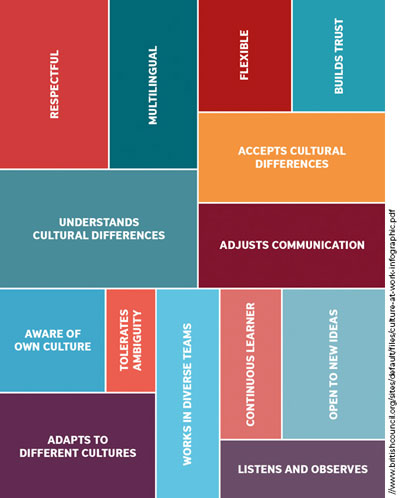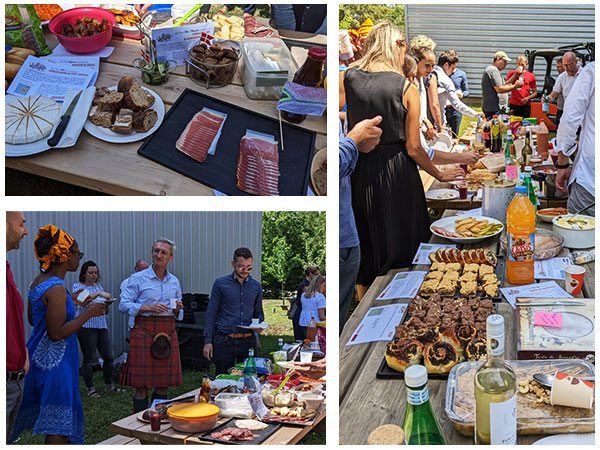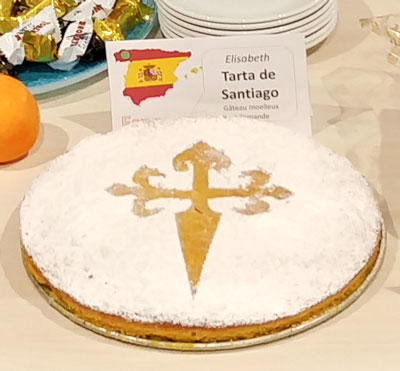Local Storage seems to be disabled in your browser.
For the best experience on our site, be sure to turn on Local Storage in your browser.
MULTICULTURALISM
“Our cultural strength has always been derived from our diversity of understanding and experience.”
-- Yo-Yo Ma (French-Born American Cellist, United Nations Messenger of Peace; b. 1955)
Test your intercultural skills
A short and interesting quiz about customs and norms around the world. A funny way to learn about other cultures in everyday life. Click here to start it.
The benefits of cultural diversity
One of the main strengths of Syveco remains in its multicultural team. Thanks to everyone’s unique personal and cultural background, we form a rich and dynamic team.
Working in a multicultural environment means being constantly in a complex interaction system and knowing how to link to it in an adequate way. Thanks to that, we acquire a high sense of adaptability, and we keep our minds open and curious. The diversity of a multicultural team fosters rich communication and builds respect among employees.
As everyone’s cultural background and personal trajectory are different, each of us has a different way of approaching problems and situations. Sharing these multiple perspectives leads to great creativity. Multiculturalism is a real diversity of talent, a favourable framework to complete great projects together.
We share with you a few moments of our everyday multicultural life at Syveco, and we post some interesting articles about the topic.


International lunch at Syveco
For a few years, the international lunch has become a tradition at Syveco. Food is deeply connected to our identity and roots. A specific taste can bring us back to our childhood and evoke memories. Discovering the foods of a culture means also discovering its history, geography, in brief, its identity. Sometimes we recognize similarities between our dishes and feel immediately connected to each other. Every time the taste experiences are different and surprising.




Elisabeth's pie in the spotlight: la Tarta de Santiago
Tarta de Santiago (or "Torta de Santiago" in Galician) is the emblematic dessert of the region of Galicia (northwestern Spain) and more precisely of Santiago de Compostela, but it can also be found along the pilgrimage routes to Santiago (especially in Roncesvalles and Jaca).
The first written reference to this dessert dates back to 1577, in a document where it is called "torta real". At that time, sugar and almonds were exotic and luxurious ingredients, and wealthy families from the 16th to 18th centuries impressed their guests with this refined dessert.
This cake has the particularity of not containing flour (therefore gluten free), it is composed only of powdered almonds, sugar and eggs and can be flavored with a zest of lemon or a little cinnamon. It is also very recognizable by the drawing of the cross of the Order of Santiago traditionally made with a metal stencil and powdered sugar.
The next episode coming soon...
Interview with Geronimo about multiculturalism
Geronimo is originally from South Africa and has lived for several years in Ireland, UK and France. He completed a diploma in technical drawings in South Africa and worked as an architectural assistant in his native country. Later he obtained a degree in Marketing and Business Administration in the UK and joined a UK manufacturer where he was responsible for the concessions and export accounts for 10 years. He's been living in France for 6 years where he worked as product quality controller and as an export manager in the HVAC industry before joining Syveco.


How do you live multiculturalism at Syveco?
With relative ease because multiculturalism is an aspect in my professional and personal life which I enjoy. Fortunately, at Syveco we are a very multicultural team (over 20 languages) with diverse backgrounds, and this gives us a unique opportunity to learn about each other’s cultures that we most likely would not find in many working environments.
Before joining Syveco, have you always worked in multicultural environments?
Predominantly yes, both in South Africa and in the United Kingdom & Ireland. South Africa has 11 official languages and various subcultures with their own dialects, so working in a multicultural environment was quite normal.
Which differences do you notice between multiculturalism in the UK & Ireland and France?
In my experience, I feel that aspects such as politeness and tolerance really depend on the particular person(s) and certainly not the people as a whole. I have never considered differences in cultures to be a barrier for me, and therefore I apply this and adapt to wherever I am.
The perspectives of your co-workers with different backgrounds are often different from yours? How do you approach it?
Like with most things in life, an approach with respect and understanding makes a big difference.
Anything else?
Did you know that according to the Harvard Business Review, teams/groups that are inclusive of individuals with diverse backgrounds generally have improved accuracy in their decision-making processes?

